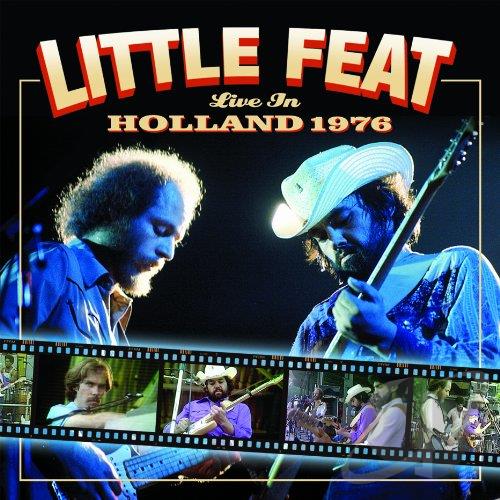-
Member

AAJ Review: Little Feat, Live in Holland 1976 (CD/DVD)

My review of Little Feat's Live in Holland 1976 CD/DVD, today at All About Jazz.
A band that has suffered more than its share of losses over the years—most significantly, group cofounder/primary singer/songwriter Lowell George, when he died of a heart attack in 1979 at the age of 34, but also the more recent passing of drummer Richie Hayward in 2010 at the age of 64, who joined the band for its second recording, Sailin' Shoes (Warner Bros., 1973) and became its hard-grooving heartbeat right through to Join the Band (429 Records, 2008)—it's almost impossible to believe that Little Feat is getting ready to celebrate its 45th anniversary in 2015.
With keyboardist Bill Payne the only remaining member of the group he co-founded with George at the start of the 1970s, Little Feat released its first, eponymous album in 1971 on Warner Bros., which would serve as the group's label through to 1990's Representing the Mambo. But it was only with a significantly revamped lineup and the broadening stylistic purview of Dixie Chicken (1973) that the group began to garner popular acclaim that matched the critical acclaim met by its first two recordings. In addition to recruiting bassist Kenny Gradney—a perfect match for Hayward—and percussionist Sam Clayon, Dixie Chicken also fleshed out the front line with the significant addition of Paul Barrere, the guitarist/vocalist who, despite being born in Burbank, California, brought a stronger New Orleans vibe to the band compositionally, and was the final piece in the puzzle that grew the band from a quartet into a sextet.
It was a winning combination—for awhile, at least, until George began feeling pushed out of his own band compositionally, as Payne and Barrere began to assert a greater interest in jazz fusion that peaked with the release of Time Loves a Hero in 1977. It ultimately led to George disbanding the group after the release of what would become its biggest seller yet, the seminal Waiting for Columbus (1978), an album that, with the group expanded even further by the addition of the Tower of Power horns, was a live album on paper only, as George needed to overdub many of his guitar and vocal parts in post-production—the consequence, no doubt, of failing health due to a confluence of circumstances...all bad.
Continue reading here...
 Posting Permissions
Posting Permissions
- You may not post new threads
- You may not post replies
- You may not post attachments
- You may not edit your posts
-
Forum Rules





 Reply With Quote
Reply With Quote
Bookmarks